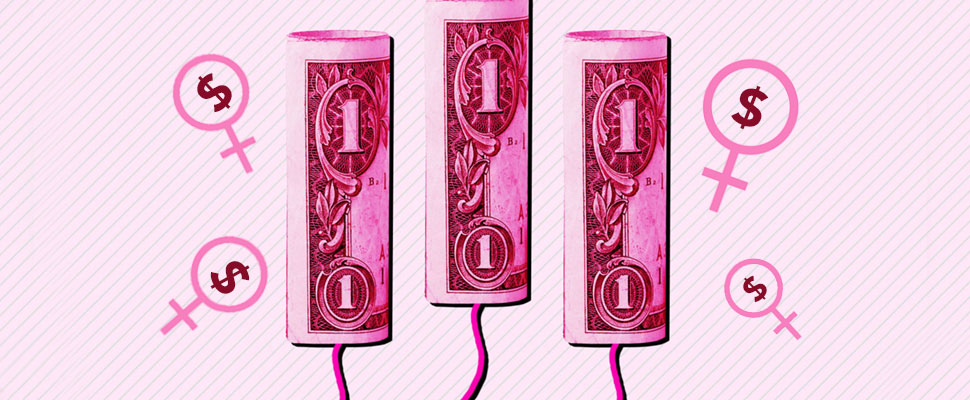The pink tax is an extra fee paid by all women around the world. Although it is a real tax, it is invisible to a large part of the population

The Pink Tax is an invisible tax that exists around the world and implies a price difference between products for women and men. That is, in two equal products, the female version is more expensive.
This extra tax is reflected when a rake or pink razor costs more than a blue one, just because the first one has a legend that claims to be for women. According to the newspaper the Economist, there is a wage gap of 17% between men and women in Latin America. Additionally, the pink rate affects their economy even more.
Leer en español: Pink Tax: El impuesto oculto que las mujeres deben pagar
The pink rate is not a new phenomenon; therefore, economists from the Department of Consumer Affairs of New York published a report in December 2015, which compared male and female versions of about 800 products, 90 brands, in 24 stores different
From the study, it was concluded that Pink Tax is on average 7%, which means that women pay a higher percentage than men for similar products. In the study, it was observed that pink was 4% in children's clothing, 7% in toys and accessories, 8% in adult clothing, 8% in products for elderly care, and 13% in personal hygiene products.
In France, after the campaign promoted by the feminist group Georgette Sand in which the population was encouraged to upload photos to social networks with examples of the Pink Tax; a study was carried out in which three types of products and three types of services were analyzed and the existence of this tax was evidenced.
Also read: Are women better investors than men?
As a result of this action, the French government undertook to organize a council to regulate the elimination of the price difference.
The explanation of the existence of the Pink Tax is that women have a very important role in consumption. As the World Bank says, women represent approximately 70% of purchasing decisions worldwide. The Harvard Business Review supports this claim and details that women make the decision in the purchases of
- 94% of the furniture for the home
- 92% of vacations
- 91% of homes
- 60% of cars
- 51% of electronic devices, among others
The tax can be found on all products, but the most notorious is found in personal hygiene items.
Why is there Pink Tax?
Under this scenario, the president of the Foundation for the Study and Research of Women (Feim), Mabel Bianco, pointed out to Infobae that "this [phenomenon] has a close relationship with the fact that women are still the most dedicated to unpaid care, which implies that they are in charge of most of the purchasing decisions of the home, whether it be furniture and supplies or clothes for all the family members, which is why they are the main target of the marketing and consumer strategies".
Despite this uncomfortable truth, Bianco believes that companies are blind to the tax, arguing that the difference of precious only occurs because it is more expensive to make feminine products.
However, when talking about products that have exactly the same formula for men and women and that the only differentiator is smell or color, as is the case of medicines and deodorants, we wonder if gender discrimination is the only explanation of the Pink Tax.
Tampons and sanitary towels: are they luxury products?
The products of menstrual hygiene like tampons and feminine towels, products exclusively for feminine use, are considered products of luxury. Therefore, they are subject to a special sales tax for this class of articles.
This kind of discrimination is also a Pink Tax. Mabel Bianco denounces that women spend between $ 5 and $ 10 dollars per month on sanitary towels and tampons. Fixed expenditure that every Latin American woman does regardless of socio-economic level. Although there are other alternatives such as menstrual cup, these have not been popularized in the region mainly because of the taboos surrounding the instrument.
The Pink Tax is real. A form of gender discrimination that has gone unnoticed for a long time, which can be combatted starting with dissemination.
LatinAmerican Post | Ana Martínez
Translated from “Pink Tax: El impuesto oculto que las mujeres deben pagar”





